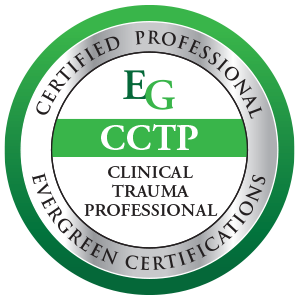Signs of Social Anxiety in Teens
As a parent, you want to ensure that your children are happy and healthy. One of the most important aspects of their wellbeing is how they interact with others and manage social situations. Unfortunately, some teens may struggle with a specific type of anxiety when it comes to social interactions, which can be difficult for parents to identify or even recognize as an issue because it may be attributed to shyness, being introverted or independent, or just being a “moody teenager.”
Social Anxiety Disorder is a type of mental health condition in which someone experiences extreme fear or discomfort in certain social settings, such as speaking publicly, being observed, performing in front of others, or interacting with strangers. While this can occur at any age, teenagers often face unique pressures due to school life that could lead them down the path towards this disorder if not addressed properly by adults around them early on. The median age of onset is 13 years old, and 75% of individuals with Social Anxiety Disorder had an age of onset between 8-15 years old, which is why early intervention is recommended.
There are several signs that parents should look out for when trying to detect whether their teen may have Social Anxiety Disorder:
– Excessive shyness: Teens who feel too scared or embarrassed about talking in front of other people might demonstrate excessive shyness around peers and adults alike; this could also include avoiding eye contact during conversations, being hesitant about joining group activities like sports teams or clubs, being excessively submissive or inadequately assertive, speaking with a very soft voice, avoiding social interactions, or showing an overly rigid body posture in social situations.
Watch carefully if they seem unable or unwilling to engage meaningfully within groups despite repeated attempts at doing so. Check in with your teen about the quality of their relationship and if they feel that these friendships are mutually supportive.
– Low self-esteem: If your teen has difficulty believing anything positive about themselves then they might be struggling internally due to low self-esteem caused by Social Anxiety Disorder. Watch out for signs like negative comments directed towards themselves after making mistakes during tasks or activities, or how they describe interactions with peers. You may hear repeated things like, “But I’m not good at that…,” “I don’t think those people like me…,” or “I’ll probably just screw it up…”.
– Overly concerned with what others think: Teens suffering from Social Anxiety Disorder will often obsess over every little detail regarding how they appear socially – including worrying too much over what other people think about them, including the things that they do. Keep an eye out for signs, such as constantly seeking reassurance from friends or family members before attempting new things, repeatedly not asking for reasonable things that may be helpful, “going along” with what others would like to do without expressing an idea or opinion, and/or making comments such as, “I always have to be the one who listens.”
– Difficulty making friends and maintaining relationships: It’s normal for teenage years to involve some awkward moments and embarrassments, but if these issues persist then there could be underlying anxieties preventing your teen from forming meaningful connections. Watch carefully if they seem unable or unwilling to engage meaningfully within groups despite repeated attempts at doing so. Check in with your teen about the quality of their relationship and if they feel that these friendships are mutually supportive. Be on the watch for comments, such as, “I’m just the therapy friend” or “This friend always needs me to be there, but they are never there for me.”
Recognizing these possible signs of Social Anxiety Disorder early on is key, because it allows you time to intervene before any serious consequences manifest later down the line. The onset of Social Anxiety Disorder often comes before other disorders, and, if left untreated, can increase the risk for developing a Major Depressive Disorder and/or Body Dysmorphic Disorder. Make sure to talk as openly as possible with your teen about any social anxieties that they may be experiencing, and when in doubt reach out to us at Sage & Anchor. We provide comprehensive clinical evaluations, which can rule out or confirm the presence of a Social Anxiety Disorder, and tailored treatment services, so that your teen can overcome these challenges and thrive in the future.



